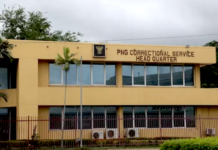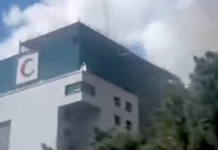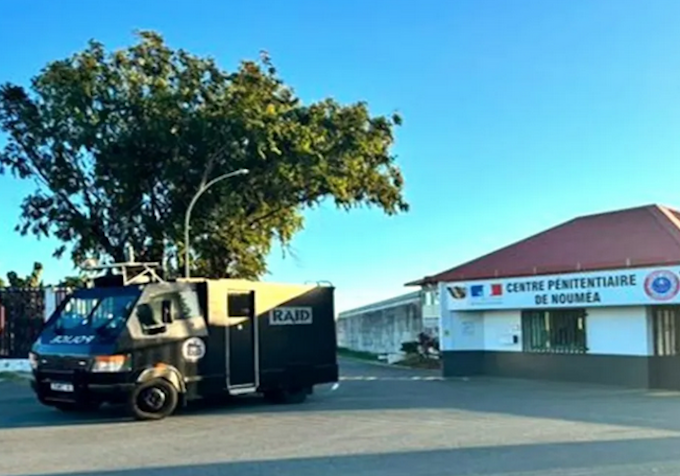
By Patrick Decloitre, RNZ Pacific correspondent French Pacific desk
New Caledonia has gone through yet another day of tense political protests and a failed prison mutiny — a few hours ahead of a vote in Paris’s National Assembly on a government-tabled Constitutional amendment.
This amendment would “unfreeze” the list of eligible voters at local elections.
Demonstrations, marches and confrontations with security forces spread throughout the French Pacific territory yesterday, with flash points in the suburbs of the capital Nouméa, especially the villages of Saint Louis and nearby Mont-Dore.
Several vehicles were burned on the roads.
By last evening, several violent confrontations were still taking place between pro-independence militants and police.
At Nouméa’s central prison, Camp Est, three penitentiary staff were briefly taken hostage by inmates, as part of a botched mutiny within the jail.
The hostages were later released.
Public services and schools in the affected areas announced they were sending staff and students home yesterday, and that they would remain closed for the next few days.
Marches were organised by a pro-independence “field action coordination committee” (CCAT) close to the Union Calédonienne party (UC), one of the main components of the Kanak Socialist National Liberation Front (FLNKS).
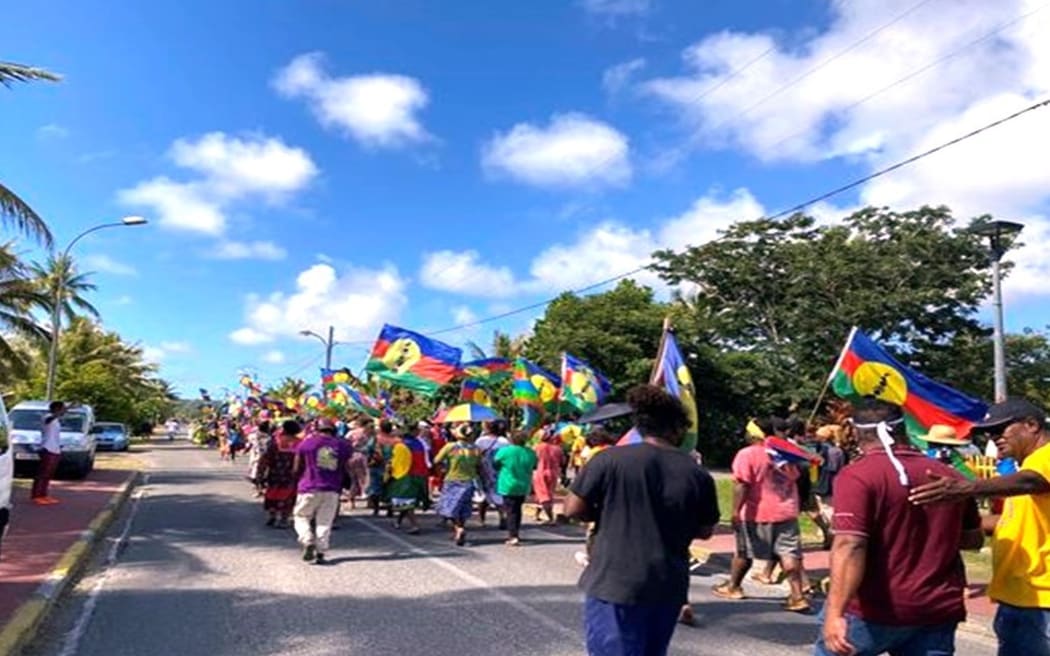
CCAT said in a release this was “stage two and a half” (out of three stages) of its mobilisation.
It involved marches in New Caledonia’s Loyalty Islands group, including Lifou, where at least 1000 people were estimated to have taken part in demonstrations.
French High commissioner’s warning
French High Commissioner Louis Le Franc announced through the public broadcaster La Première that he had called for reinforcements from Paris to maintain law and order.
This included police, gendarmes and members of the SWAT group GIGN (Gendarmerie National Intervention Group) and RAID.
Law enforcement officers were injured by stones and shots were fired from within Saint Louis on Monday, he said.
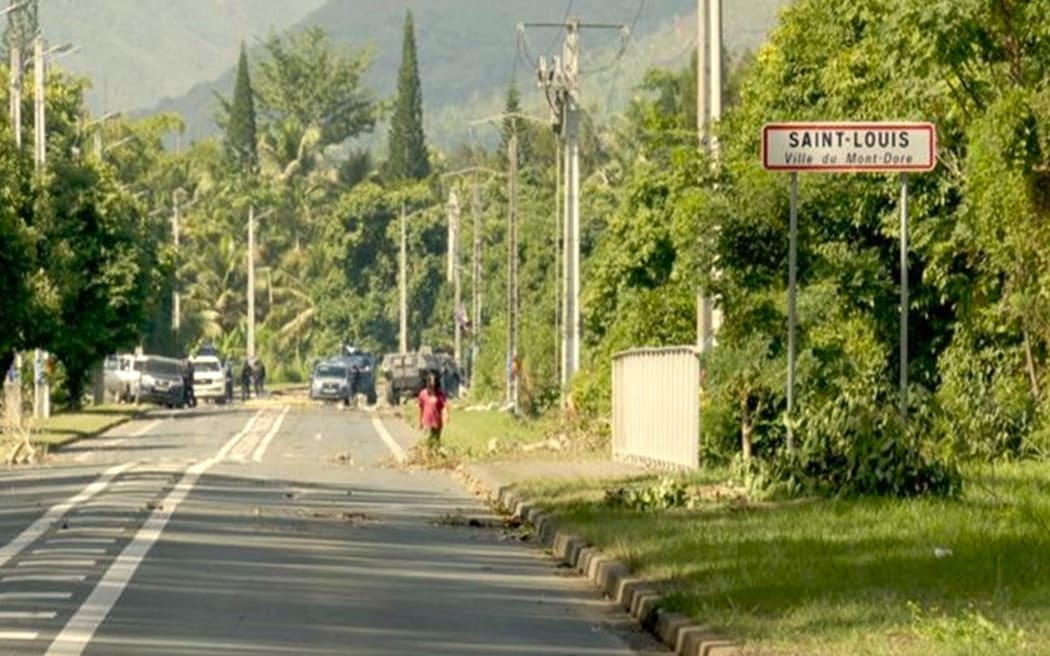
He said some of the weapons used by “youth” were high calibre hunting guns.
Le Franc also warned if, in future, law enforcement officers were targeted again, they would consider themselves in a situation of “legitimate defence” and would retaliate.
“So I’m warning these young people . . . They should stop using weapons against gendarmes,” he said.
“I don’t want to see dead people in New Caledonia, but everyone should take their responsibility.
“I have also asked the custom chiefs [of Saint Louis] to do their job. They have an influence over these young people; they should restore calm.”
He told journalists most delinquents seemed to be under the influence of alcohol.
Le Franc also announced for the next 48 hours he had placed a ban on port and transport of weapons and ammunition, as well as another ban on the sale of liquor.
“Thirty-five gendarmes have been injured [on Monday] by stones and gunshots of large calibre, semi-automatic hunting guns. These are about 200 aggressive youths,” he told the public media.
While appealing for calm and respect for public order, he also strongly condemned the blockades and said the police and gendarmes’ first mission was to restore freedom of movement at blockades.
About 15 people were arrested yesterday, he said.

Macron to invite leaders for talks
In an apparent wish to give more time for a local, inclusive agreement to take place, French President Emmanuel Macron’s entourage told French media at the weekend he would not convene the French Congress (a special gathering of both Houses of Parliament) for “several weeks”.
The French President’s office was also ready to call on all of New Caledonia’s political parties (both pro-France and pro-independence) for a roundtable in Paris by the end of May, in order to find an agreement on New Caledonia’s long-term political future.
This article is republished under a community partnership agreement with RNZ.





























